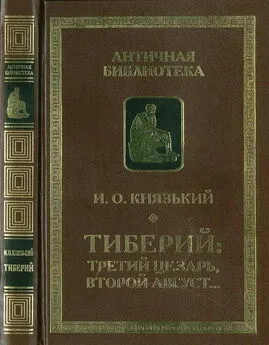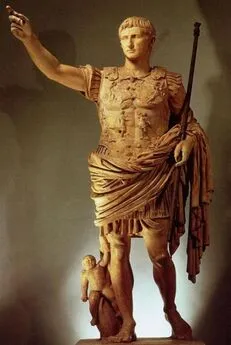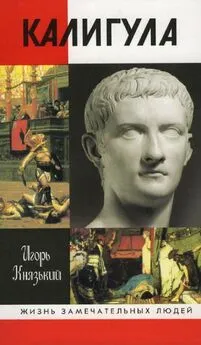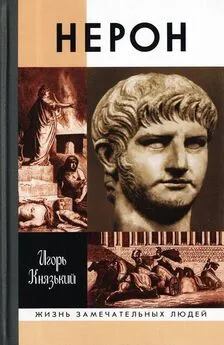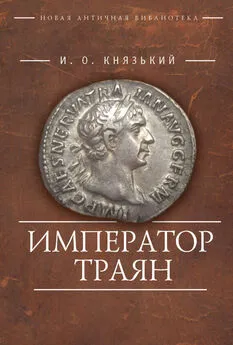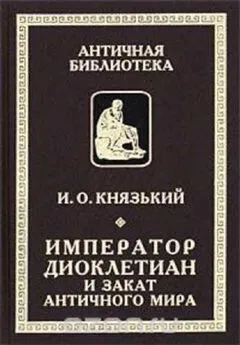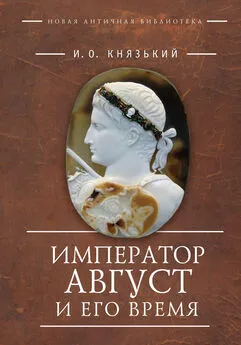Игорь Князький - Тиберий: третий Цезарь, второй Август…
- Название:Тиберий: третий Цезарь, второй Август…
- Автор:
- Жанр:
- Издательство:Алетейя
- Год:2012
- Город:СПб.
- ISBN:978-5-91419-699-5
- Рейтинг:
- Избранное:Добавить в избранное
-
Отзывы:
-
Ваша оценка:
Игорь Князький - Тиберий: третий Цезарь, второй Август… краткое содержание
Монография доктора исторических наук профессора И.О.Князького посвящена жизни и деяниям римского императора Тиберия. Тиберий стал третьим по счету цезарем, получившим высшую власть, он — второй Август во главе Принципата и первый легитимный правитель Римской империи, законно унаследовавший императорскую власть.
Выдающийся полководец, успешный правитель империи и безжалостный тиран (в последние годы своего правления). Неудивительно, что в исторической науке уже не одно столетие ученые спорят как о личности самого императора, так и о значении его правления.
Опираясь на широкий круг источников и исследований, автор анализирует события долгой жизни Тиберия в контексте панорамы бурных исторических процессов того времени, охватывая период от гражданской войны в Римском государстве после гибели Гая Юлия Цезаря (42 г. до Р. X.) до смерти Тиберия в 37 г.
Тиберий: третий Цезарь, второй Август… - читать онлайн бесплатно полную версию (весь текст целиком)
Интервал:
Закладка:
Hellegonarch J. Veleius Paterculus. Histoire Romain. Paris, 1982.
Syme R. The Augustian aristocracy. Oxtord, 1986.
Smith Ch. Tiberius and the Roman Empire. Baton Ronge, 1942.
Tarver J. Tiberius the Tyrant. London, 1902.
Akveld W. Germanicus. Groningen, 1961.
Christ K. Drusus und Germanicus. Paderborn, 1956.
Paratore E. Tacito. Milano, 1931.
Grant M. Aspects of the principate of Tiberius. New York, 1950.
Polacco L. II volto di Tiberio. Roma, 1955.
Rogers R. Criminal trials and criminal legiclation under Tiberius. Middletown, 1935.
Gelzer M. The Roman nobility. Oxtord, 1969.
Rostovtzeff M. L'empereur Tibe're et le culte imperial/ Revue Historique, 163, 1930.
Frank T. The tinancial crisis of 33 AD / American Journal of Philology. Baltimore, 56, 1935.
Charlesworth M. Tiberius / Cambridge Ancient History, V-X, 1939.

The personality of the Roman emperor Tiberius and assessment of his rule has been a matter of dispute among scholars for a few centuries. These problems arise from the inconsistency of human features of Tiberius and his reigning over the Roman Empire. He was a brilliant military commander whose achievements on the battlefield put him in the same line with great Roman military leaders such as Scipio Africanus, Marius, Sulla, Pompeius and Caesar; he was a wise ruler who did not overtax his people and who was skillful enough to prevent an acute financial turmoil in the empire and to amass huge amounts of wealth in the aerarium; he was a governor promptly succouring the needy affected by natural hazards and indemnifying them for the incurred expenses with an unsurpassed generosity. The Empire did not wage ruinous wars during his rule. On the whole, internal tranquillity reigned in the Roman state whereas separate mutinies were quickly and successfully suppressed. Early Christian writers viewed Tiberius as a person who was ready to recognize the divinity of Jesus Christ and who prevented the pursuit of Christians by the Roman power. At that time, Roman historians described Tiberius as a sanguinary tyrant. An emperor who himself destroyed his own benign undertakings — that was the verdict of classics.
Indeed, it is extremely difficult to understand how one personality can combine such contrary features and how the praiseworthy government has turned into a tyranny. Consequently, the world history offers two very different viewpoints on Tiberius himself and on the results of his reign. The coexistence of the condemnatory position on Tiberius as a tyrant, which has been traditional since Tacitus, with historical studies rehabilitating Tiberius, was permanent from the 19th century to the present day.
A critical appraisal of Tiberius provided by Roman authors makes a base for the rehabilitation approach to his reign. First of all, it refers to Tacitus and Suetonius. A detailed examination of the sources does not allow describing the times of Tiberius as a reign of mass terror. According to some estimates, there were not more than twenty victims of political repression during his reign. Those who disagree with it, say the death toll was higher, but still they speak about dozens of victims. These figures are absolutely inconsistent with thousands of victims of Sulla's repressions and those condemned by triumvirs Antonius, Octavius and Lepidus. In the times of Caligula, Claudius, Nero and Domitian — emperors reigning after Tiberius -repressions were on a far larger scale. It goes without saying that the appraisal of political repressions cannot be based only on the quantitative factor. But, since there were also innocent people among those, who were executed or coerced to suicide in the times of Tiberius, his actions deserve moral condemnation in any case.
The causes of the negative features of Tiberius's reign were also a matter of historical disputes. The first ten years of his rule saw no political repressions. The emperor on his part did his utmost to maintain good relations with the senate, which is confirmed by Roman historians. One may say there was a kind of harmony between the Caesarean power and the senate in those years. But an unbridled ambition for power of Agrippina the Elder, wishing to retain supreme power in Rome in the hands of her descendants, and a latent opposition of some senators, sympathizing with her ambitions, could have served as an impetus for a turn for the worse. Tiberius's respect for the senate was to a large extent undermined by the ostensible subservience of the senators themselves. And it is no mere chance that he used to say repeatedly about them: “Oh, those people born for slavery!” The disgusting obsequiousness covering opposing views could not but provoke the emperor's violent measures against those who came under his suspicion of bearing ill feeling towards his power.
Most historians traditionally attribute the turn of Tiberius to political persecution of the families of Agrippina and senators to the name of Seianus — commander of the Praetorian Guard, who enjoyed the complete confidence of the emperor. But an in-depth analysis of the sources does not confirm this opinion. Seianus was only an instrument in Tiberius's hands, sometimes a creative one but an instrument. When Tiberius became suspicious of his striving for excessive independence and got information on Seianus accusing him of preparing a coup d'etat, he quickly cut short the career of his former favourite without remorse. A viewpoint saying that Seianus did not hatch a plot but somebody hatched a plot against Seianus is becoming increasingly popular of late.
Making an assessment of the almost 23-year reign of emperor Tiberius, one cannot but agree that in the light of all known negative events it was, by all means, the most successful reign for the Roman Empire during the entire epoch of the Julio-Claudian dynasty, the first six Roman Caesars.

Ссылки
1
Плутарх. Брут, XXXVIII.
2
Светоний. Божественный Юлий, 77.
3
Светоний. Божественный Юлий, 88.
4
Светоний. Тиберий. 1.
5
Светоний. Тиберий. 1.
6
Геръе В. И. История римского народа. М., 2002, с. 103
7
Геръе В. И. История римского народа, с. 104
8
Тит Ливии. История Рима от основания города. XXVII, 49 (5).
9
Геродиан. История. I, II, 4-5.
10
Светоний. Тиберий. 1.
11
Светоний. Тиберий. 2.
12
Светоний. Тиберий. 6.
13
Светоний. Тиберий. 4.
14
Плутарх. Антоний. XXX
15
Светоний. Божественный Август, 15.
16
Аппиан. Гражданские войны. 5, 57.
17
Светоний. Божественный Август, 96.
18
Светоний. Божественный Август, 15.
19
Светоний. Тиберий. 6, (1).
20
Аппиан. Гражданские войны. 5,57.
21
Плутарх. Антоний. XXX
22
Веллей Патеркул. Римская история. II, LXXVI.
23
Светоний. Тиберий. 6, (2).
24
Веллей Патеркул. Римская история. II, LXXV. (3).
25
Светоний. Тиберий. 3.
26
Светоний. Божественный Август, 62, (I).
27
Светоний. Божественный Август, 62, (2).
28
Дион Кассий. Римская история XLVII, 44, 10.
29
Веллей Патеркул. Римская история. II, LXXI.
30
Тацит. Анналы V, 1.
31
Кнабе Г. С. Рим Тита Ливия — образ, миф, история. — Тит Ливии, История Рима от основания города. М. 1991. Т. III, с. 605.
32
Тацит. Диалог об ораторах. 28.
33
Светоний. Тиберий. 70, (3).
34
Светоний. Тиберий. 70, (1).
35
Веллей Патеркул. Римская история. II, XIIV, 1-2.
36
Светоний. Тиберий. 57, (1).
37
Светоний. Божественный Август, 16, (1,2).
38
Светоний. Божественный Август, 20.
39
Деяния Божественного Августа, 13.
40
Веллей Патеркул. Римская история. II, LXXXIX, 1-4.
41
Веллей Патеркул. Римская история. II, ХС.
42
Дион Кассий. Римская история XLIII, 28.
43
Веллей Патеркул. Римская история. II, XLIV, 3; Светоний. Тиберий.
44
Бокщанин А. Г. Парфия и Рим. Возникновение системы политического дуализма в Передней Азии. М., 1960. Т. I, с. 25.
45
Плутарх Красе. XXXIII.
46
Плутарх Антоний. XXXIV.
47
Светоний. Тиберий. 9, (1).
48
Веллей Патеркул. Римская история. II, XCV, 1.
49
Деяния божественного Августа. 27, (2).
50
Деяния божественного Августа. 29, (2).
Читать дальшеИнтервал:
Закладка:
